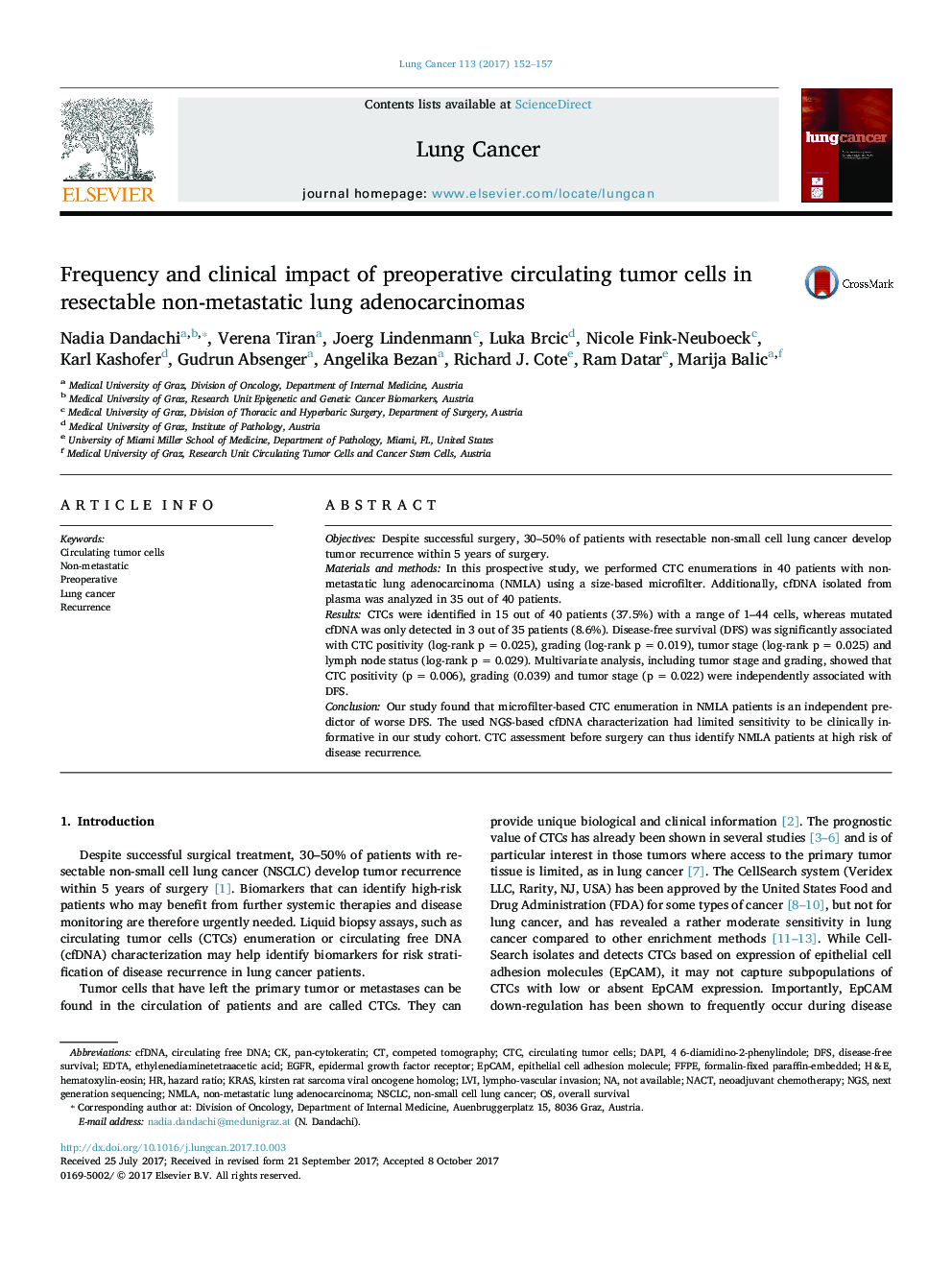| Article ID | Journal | Published Year | Pages | File Type |
|---|---|---|---|---|
| 5528090 | Lung Cancer | 2017 | 6 Pages |
â¢CTCs were identified in non-metastatic lung adenocarcinoma patients.â¢NGS-based cfDNA characterization was not informative in our study cohort.â¢CTC positivity was independently associated with disease-free survival.â¢Preoperative CTC detection can identify patients at high risk of disease recurrence.
ObjectivesDespite successful surgery, 30-50% of patients with resectable non-small cell lung cancer develop tumor recurrence within 5 years of surgery.Materials and methodsIn this prospective study, we performed CTC enumerations in 40 patients with non-metastatic lung adenocarcinoma (NMLA) using a size-based microfilter. Additionally, cfDNA isolated from plasma was analyzed in 35 out of 40 patients.ResultsCTCs were identified in 15 out of 40 patients (37.5%) with a range of 1-44 cells, whereas mutated cfDNA was only detected in 3 out of 35 patients (8.6%). Disease-free survival (DFS) was significantly associated with CTC positivity (log-rank p = 0.025), grading (log-rank p = 0.019), tumor stage (log-rank p = 0.025) and lymph node status (log-rank p = 0.029). Multivariate analysis, including tumor stage and grading, showed that CTC positivity (p = 0.006), grading (0.039) and tumor stage (p = 0.022) were independently associated with DFS.ConclusionOur study found that microfilter-based CTC enumeration in NMLA patients is an independent predictor of worse DFS. The used NGS-based cfDNA characterization had limited sensitivity to be clinically informative in our study cohort. CTC assessment before surgery can thus identify NMLA patients at high risk of disease recurrence.
